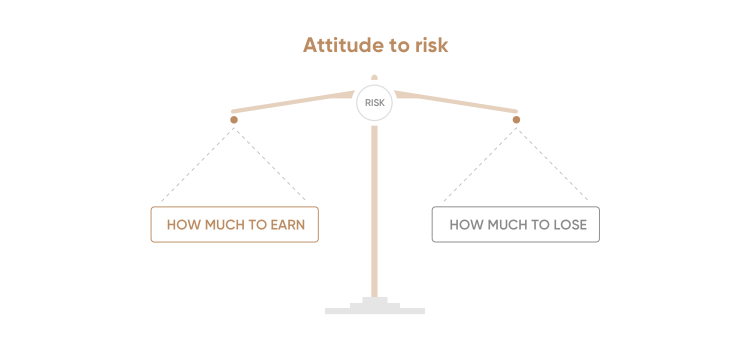What is attitude to risk?

Choosing the right investments means balancing how much you are prepared to lose with how much you hope to earn.
Key takeaways
-
Attitude to risk refers to how much risk you're willing to take with your money and assets within a particular timeframe.
-
Higher risk investments offer potentially higher returns but also greater potential losses, while low risk investments provide lower rewards with less risk.
-
Your risk attitude is influenced by personal situation, age, goals, and economic climate, and can change over time with life circumstances.
-
Financial advisers should ask about your risk tolerance, and investment application forms and online platforms typically include attitude to risk questions.
This means understanding risk and your attitude to risk – how much risk you are prepared to take with your money and assets in a particular timeframe.
This can be affected by many factors, including your personal situation, age, goals and the current economic climate.

Where have you heard about attitude to risk?
If you talk to a financial adviser they should ask you about how much risk you are prepared to take with your money. You may also find questions about attitude to risk on investment applications forms or online investment platforms.
What you need to know about attitude to risk...
Usually, the higher the risk you are willing to take, the higher the potential returns could be – but equally, the higher the risk of losing your money too.

Low risk investments are likely to offer lower rewards, but have less risk attached too. You have to choose the options you are comfortable with.
Your attitude to risk can of course change over time. You might become much less risk averse if you came into a big sum of money, for example, or much more risk averse if you start to have a family and need to think about securing your children's future too.